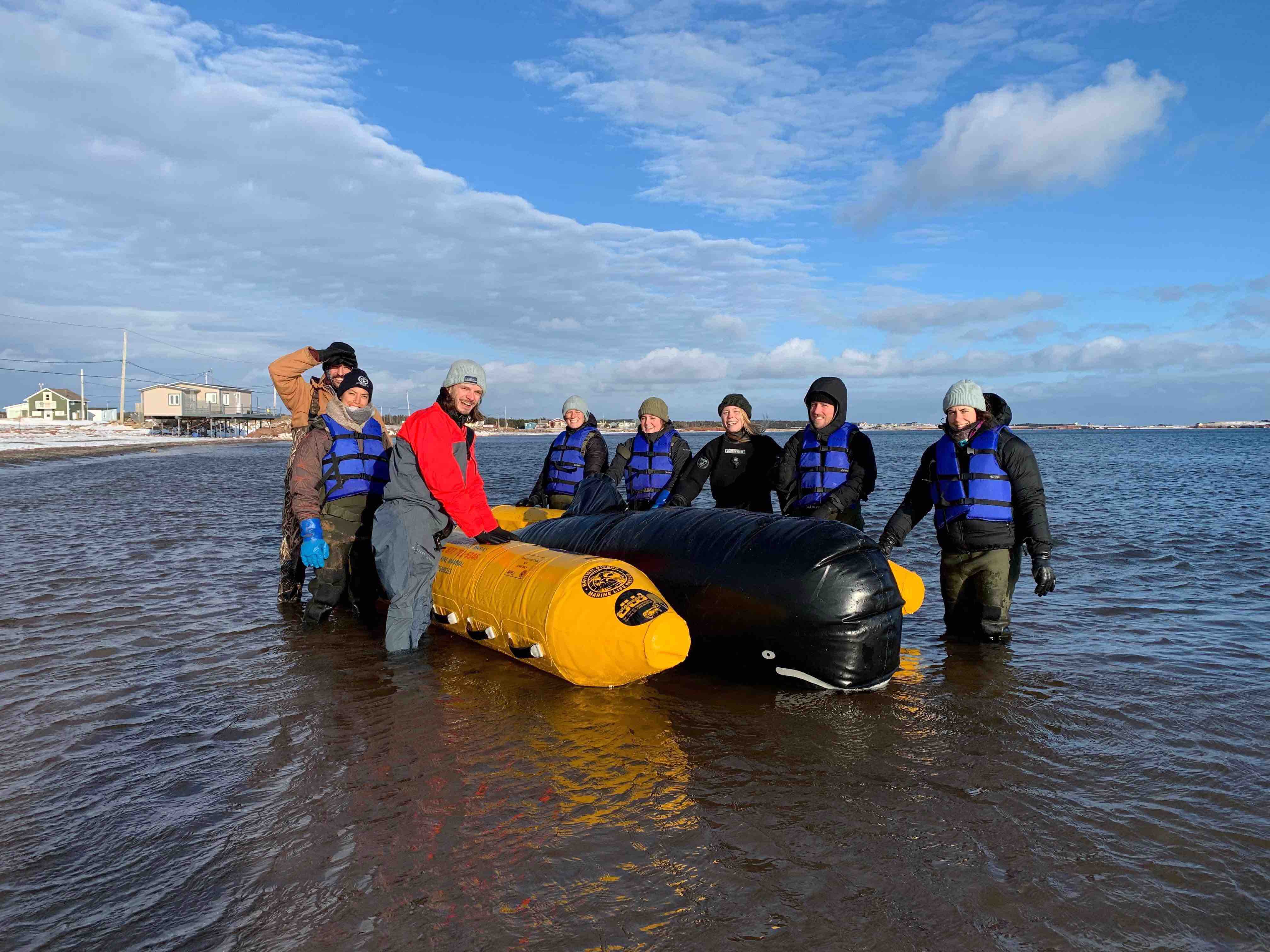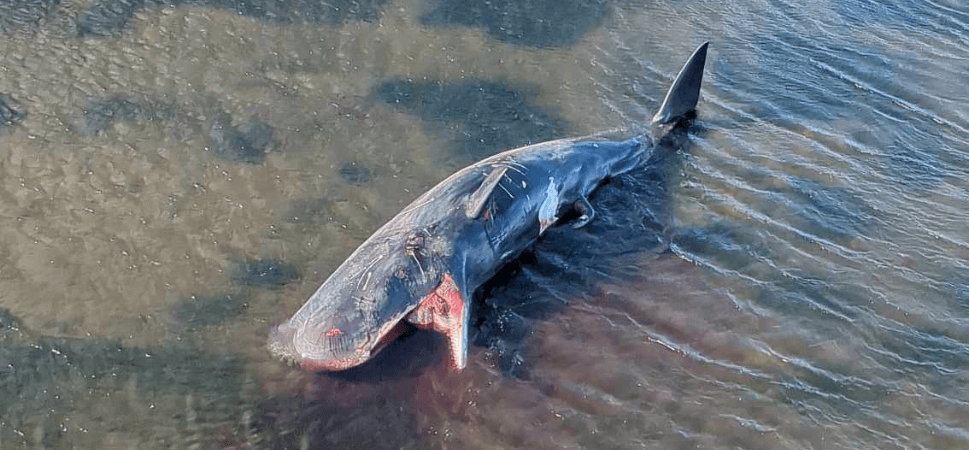With the arrival of spring, the once frozen shores of the St. Lawrence begin to open up, exposing carcasses of marine mammals that had become stranded over the winter. These carcasses represent a source of invaluable information for conservation and scientific research. The Quebec Marine Mammal Emergency Response Network requests that local residents and other users of the St. Lawrence promptly report the discovery of any carcass by dialling 1-877-7baleine (1-877-722-5346).
Carcasses that speak volumes
Examining those carcasses reported to us by witnesses usually allows us to identify the species. Depending on the species and the state of the carcass, Network volunteers or partners head to the site of the stranding to collect additional data such as the sex and age of the animal. We use these data to track marine mammal populations in the St. Lawrence.
Some species are subject to more rigorous monitoring. For example, for belugas, Fisheries and Oceans Canada is undertaking a program in which all carcasses are systematically sampled. If they are fresh, carcasses are sent to the Université de Montréal’s Faculty of Veterinary Medicine (FMV, Saint-Hyacinthe) for a comprehensive necropsy.This examination helps determine most notably the cause of death, the pathologies involved and contamination levels of various toxins. If transporting the carcass is unjustified due to its condition, the St. Lawrence National Institute of Ecotoxicology (SLNIE) performs in situ sampling to determine at the very least the beluga’s age, sex and the concentrations of various contaminants in the animal’s fat. In 2014, out of 11 beluga carcasses, 3 were transported to the FMV and 8 were sampled on site.
Commercial fishing season
Every year since 2004, the Network handles between 3 and 20 incidents involving whales tangled up in fishing gear across Quebec; some are already dead while others are still alive when fishermen call them in. Thanks to these individuals’ collaboration, whenever a whale in difficulty is reported, interventions are attempted with the goal of rescuing the animals while minimizing fishing gear losses and damage. Specially trained response teams which are present in each region are composed of Fisheries and Oceans Canada fishery officers, Parks Canada wardens or individuals from the Mingan Island Cetacean Study (MICS) or the Group for Research and Education on Marine Mammals (GREMM). The Network aspires to eventually involve fishermen who are interested in learning safe techniques for releasing whales, though such tasks can entail significant risk.
Call to citizens
The Quebec Marine Mammal Emergency Response Network exists thanks to the involvement of fifteen of so private and governmental organizations and some one hundred volunteers. The Network is responsible for organizing, coordinating and implementing measures aimed at reducing accidental mortality of marine mammals, rescuing marine mammals in difficulty, and facilitating the acquisition of data from animals that have died in the waters of the St. Lawrence in Quebec.
The Network relies on local residents and users of the St. Lawrence to promptly report incidents concerning marine mammals (whales and seals) in difficulty or dead by dialling 1-877-7baleine (1-877-722-5346). This toll-free number can be used 24/7 to reach the Marine Mammal Emergencies call centre. Thank you for your precious cooperation!
orter rapidement tout cas de mammifères marins (baleines et phoques) en difficulté ou mort au 1-877-7baleine (1-877-722-5346). Le numéro sans frais permet de joindre en tout temps un responsable du Centre d’appels Urgences Mammifères Marins. Merci de votre précieuse collaboration!





